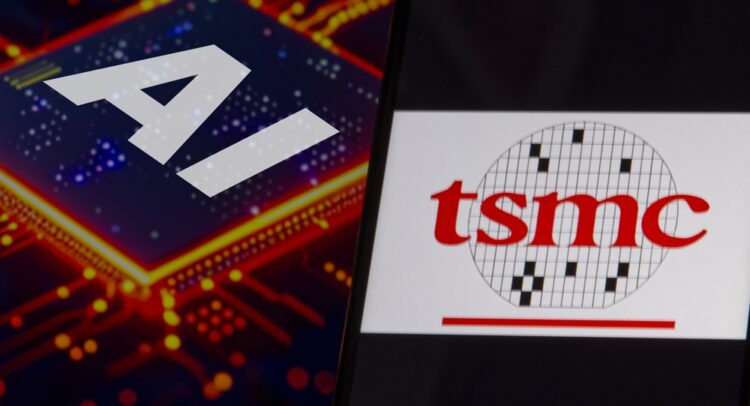Taiwan Semiconductor (TSM) is nearing the rollout of an advanced chip packaging mechanism to power Nvidia (NVDA) and Alphabet (GOOGL) Google’s superior artificial intelligence (AI) chips. The news was first reported by Nikkei Asia, citing sources familiar with the matter. TSMC is the world’s largest contract chip manufacturer, and American companies have relied on its cutting-edge manufacturing expertise for years.
TSMC boasts some of the large American tech giants as its customers, including iPhone maker Apple (AAPL), AMD (AMD), Amazon (AMZN), Nvidia, and Google.
Why TSMC’s Chip Packaging Stands Out
TSMC is finalizing the design of its next-generation technology, which will allow it to accommodate multiple semiconductors into a single chip to accelerate its computing power. The company is currently building a production line for the advanced packaging at a plant in Taoyuan, Taiwan, with small batches of production expected to start around 2027.
Chip packaging involves manufacturing protective cases and creating electrical connections so that the chips can be placed into the electronic device. TSMC is making a square-shaped substrate (supporting case) to accommodate more semiconductors, while most of the currently available substrates are round.
Chip packaging is the final stage of chip production and, in fact, is one of the main challenges faced by semiconductor companies, due to shortage of its parts and obsolete techniques. As the AI industry blooms into its advanced stages, especially of generative AI, demand for massive computing power is expected to explode. TSMC’s new packaging design could facilitate such large processing power since it has the potential to integrate multiple semiconductors within a single chip.
Is TSM a Good Stock to Buy?
With five Buys and one Hold rating, TSM stock commands a Strong Buy consensus rating on TipRanks. Also, the average Taiwan Semiconductor Manufacturing price target of $240.83 implies 54.5% upside potential from current levels. Year-to-date, TSM stock has lost 20.9% amid growing concerns over Trump’s tariffs.

















